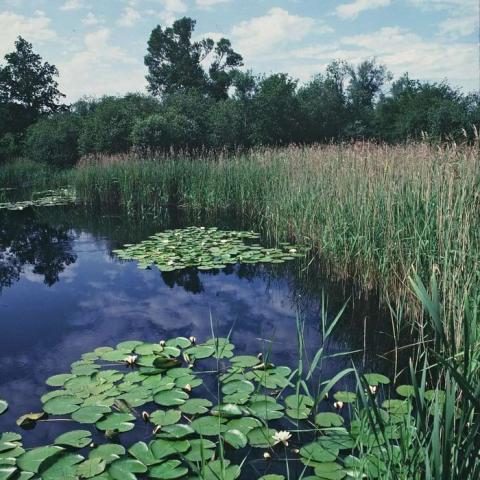Biodiversity, Sustainable Development and the Law Course

Organised in collaboration with global initiatives of the Centre for International Sustainable Development Law (CISDL) by several partners across the University of Cambridge: Lucy Cavendish College, Hughes Hall, Bennett Institute for Public Policy, and the Centre for Energy, Environment and Natural Resources Governance (C-EENRG).
Selected participants receive a full scholarship and — upon successful completion of the course — a certificate from leading expert institutes of the University of Cambridge and global partners.
The application deadline for the Biodiversity, Sustainable Development and the Law Course is 14 March 2024, 23:59 GMT.
The course is taking place from 6 May 2024 to 19 May 2024.
This online short course introduces learners to pressing biodiversity law and governance challenges; explores the Global Biodiversity Framework and the tools it offers for policy and law makers, including access to finance, transparency and science; identifies and analyses innovative domestic legal and policy solutions; prepares learners to strengthen the role of law and policy in monitoring and reporting; and inspires learners to advance their global careers in sustainability and justice.
This course provides eight to ten hours of total learning time, with five focused, intensive modules of instruction from leading University of Cambridge and global experts, live classroom engagements, access to leading materials and several hours of independent, self-paced work.
The course is largely self-paced and learners complete the course at their convenience between 6 - 19 May 2024.
Upon successful completion of the course, learners are eligible for a certificate from leading expert institutes of the University of Cambridge and global partners. Learners also access global sustainability careers mentorship, community of practice, networking and other benefits.
Course Modules
- Module 1: Course Introduction and Orientation
- Module 2: Nature Conservation, Ecosystem Restoration and Biodiversity Protection
- Module 3: Sustainable Use and Management of Biodiversity, Trade of Wildlife Species and Ecosystem Valuation
- Module 4: Benefit-Sharing and Protection of Traditional Indigenous Knowledge
- Module 5: Biodiversity Finance, Capacity-Building, Scientific Cooperation and Tech Transfer
- Module 6: Course Conclusion and Final Remarks
How to Apply
To apply to participate in this course, please complete the 2-step application process.
Step 1: Submit this Eventbrite form to express interest in taking this course.
Step 2: You will receive a link to a brief application form via email. Complete this application form by the deadline to apply for the course and a full scholarship valued at more than 800 GBP.
Deadline to Apply
Both Step 1 and Step 2 of the application process must be submitted no later than 14 March 2024 (Thursday), 11:59pm GMT for the application to be considered.
*Please note that a separate expression of interest and application form must be submitted for each key essentials course being offered this spring that you want to apply for.
Further information
This opportunity is part of several Key Essentials courses. For a summary of the programme, see this article. For all available courses in spring 2024, see this overview.
For more information on the previous edition in 2023, see this article.
You might also be interested in ONet's catalogue of e-learning opportunities on biodiversity law and finance. All of the materials and courses are available at no cost to learners, and in many cases a certificate is included.
About the organisers
- The Centre for International Sustainable Development Law (CISDL) is an independent international research institute integrating environment, human rights and economy through legal scholarship and empowerment.
>> Learn more
- Founded in 1209, the University of Cambridge is the fourth-oldest university in the world. It is a globally diverse institution and our students come from more than 130 different countries.
>> Learn more
- Lucy Cavendish College is one of 31 colleges within the University of Cambridge. It seeks to welcome and support particularly those who have a passion and commitment to address the global challenges that characterise our societies in the 21st Century.
>> Learn more
- Hughes Hall is one of 31 colleges within the University of Cambridge: We are one of the most international colleges, bridging the academic and external worlds.
>> Learn more
- Launched in 2018, the Bennett Institute is committed to interdisciplinary academic and policy research into the major challenges facing the world, and to high-quality teaching of the knowledge and skills required in public service.
>> Learn more
- The Cambridge Centre for Environment, Energy and Natural Resource Governance (C-EENRG) was established in 2014 within the Department of Land Economy in order to conduct integrative research on the governance of environmental transitions.
>> Learn more
Photo by Natural England on Flickr: Old brickpit with white water-lily at Wicken Fen National Nature Reserve Cambridgeshire, United Kingdom. Copyright Natural England/Peter Wakely 1991. Wicken Fen National Nature Reserve is the National Trust's oldest nature reserve, and England's most famous fen. As the National Trust explains, Wicken Fen is "one of Europe's most important wetlands, supports an abundance of wildlife. There are more than 9000 species, including a spectacular array of plants, birds and dragonflies."
